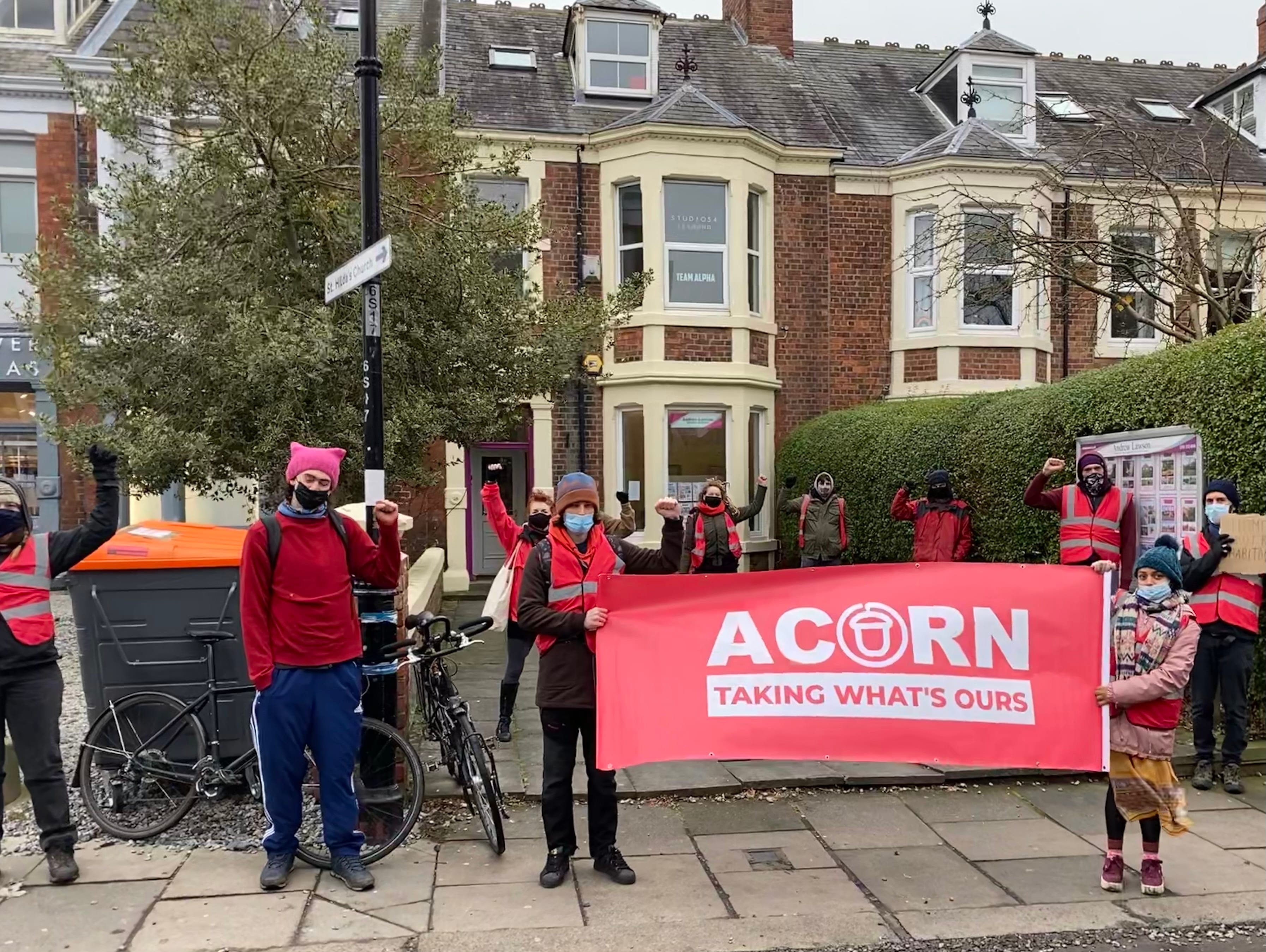This two-year project will identify, engage and support private and social renters in the Shieldfield area of Newcastle to build active and effective groups that are able to support each other and advocate for the changes they want to see locally.

Who
Alongside local staff and volunteers local residents organise campaigns and activities. The project is hosted by ACORN Newcastle.
What
The union supports renters to deal with issues ranging from illegal evictions, compensation claims, poor living conditions and contract disputes.
Where
Shieldfield, Newcastle
When
2020-2022
Rising rents, falling wages and unstable local economies all contribute to housing difficulties which lead to both short and long-term health issues. 8.5 million renters experience stress or anxiety and a quarter are made physically sick as a result of their housing situation. The health outcomes associated with poor housing costs the NHS an estimated £1.4bn every year.
In Newcastle, ACORN have helped residents to organise and consolidate community power through the training of case support volunteers who help tenants negotiate with landlords about disrepair, harassment, rent changes and evictions. They now have 30 case support volunteers in the city who can deliver training and education to tenants and new members of the casework team. The current group of local renters would like to expand their local links and activity, and develop a citywide campaign on the issues they face as tenants.
The Covid-19 pandemic has had a major impact on the financial and social wellbeing of ACORN’s members. Over the prior 18 months the organisation has had to support members against unfair evictions which have risked people’s immediate health.
When it comes to improving people’s situation, the government has said they would end Section 21 evictions but haven’t done so yet. Section 21 evictions mean people can be evicted by a landlord without a reason. This is the biggest fear of a lot of the people we see, so changing that would improve people’s wellbeing. We’d also like to see people who couldn’t pay their rent because of the pandemic be properly understood and supported by government.
Tom
ACORN Development Officer
